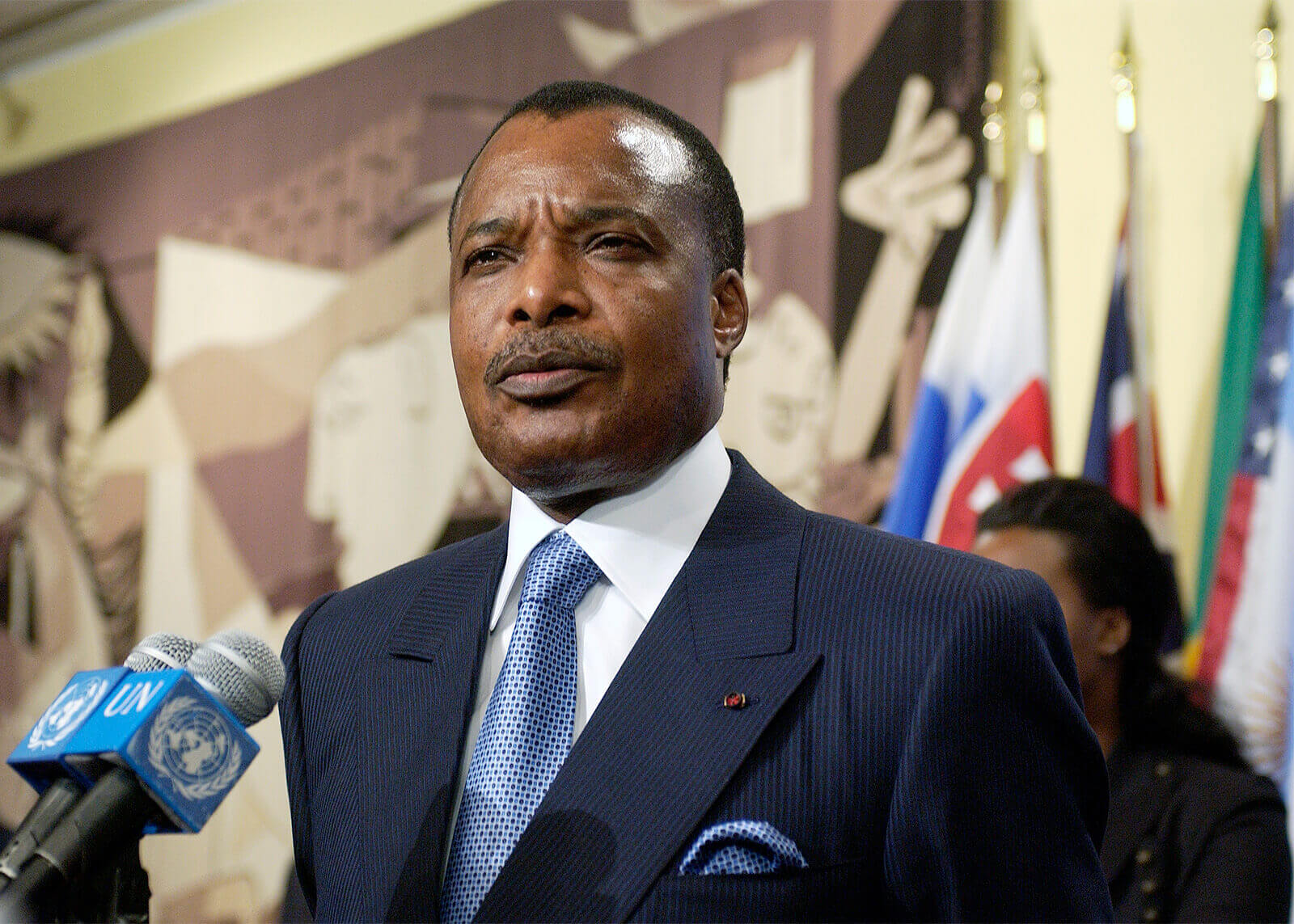According to provisional results from electoral authorities in the Republic of Congo, also known as Congo-Brazzaville, President Denis Sassou-Nguesso has been re-elected for a fourth term with 88.57% of votes, meaning that he has now been in power for a total of 36 years. His victory was announced by the interior minister, but the legitimacy of the election has come under suspicion after the country’s biggest opposition party, Pan-African Union for Social Democracy (UPADS), withdrew from the race altogether, citing a lack of freedom of speech and the absence of a credible “democratic process”. Sassou-Nguesso’s victory was made even more of an inevitability after his only plausible opponent, Guy-Brice Parfait Kolelas, who won 7.84% of the votes, died on Sunday from the coronavirus on a medical plane after landing in Paris for treatment. Voter turnout was recorded at 67.55%.
Mathias Dzon, another opposition candidate, has said that he will lodge an appeal with the Constitutional Court to annul the results owing to a constitutional provision that “provides for the cancellation of the ballot when a candidate dies or is unable to vote”. However, his bid to get the results cancelled has already been rejected by the electoral commission, whose chief, Henri Bouka, who is also the president of the Supreme Court, said, “Kolelas died after the vote in Paris so Article 70 cannot be evoked in these conditions.”
Sassou-Nguesso first became president in 1979 and ruled until 1992, when he lost in the country’s first election. He re-entered office in 1997 following a civil war in which his rebel forces ousted erstwhile President Pascal Lissouba from power. He was then elected into power in 2002 and re-elected in 2009, which at the time appeared to be his second and final seven-year term. However, in 2015, he instituted constitutional amendments to remove the 70-year age limit and removed the two seven-year term limit and replaced it with three five-year terms.
His re-election in 2016 was marred with controversy, as it was alleged that he had rigged the polls to secure 67% of the votes. The ensuing violence resulted in the deaths of at least 17 people. In fact, the two principal opposition candidates from the 2016 election, Jean-Marie Michel Mokoko and Andre Okombi Salissa, were sentenced to prison for 20 years. Former army general Mokoko was charged in 2018 for “undermining state security”, while former government minister Salissa was detained in 2017 for possession of weapons.
In fact, Brett Carter, an expert on the country at the University of Southern California, contends, “The key reason why there aren’t really very many strong challengers, is that the two strongest challengers remain in prison.” The executive director of South African think-tank Institute for Security Studies, Fonteh Akum, says that their arrests were “politically motivated”.
Congo-Brazzaville’s economy has taken a severe hit over the past few years, particularly in 2014, when oil prices crashed and exacerbated the country’s external debt crisis that is now well above 100% of its gross domestic product (GDP). Another collapse of oil prices last year, combined with the impact of the ongoing pandemic, resulted in the Republic of Congo’s economy shrinking by 8% in 2020, and it is predicted that growth will be less than 1% in 2021.
Against this backdrop, it has been suggested that France, who provides millions in aid to Congo-Brazzaville, could wade in and resolve the political crisis in the country by raising doubts about the legitimacy of the election. Its interest in doing so lies in the fact that French oil giant Total has operations in the country as well. ISS’ Akum argues that while France is unlikely to explicitly wade in, it could reduce its investment “if there is a lot of violence and a lot of questions around fairness of the election”. Regardless, considering that Sassou-Nguesso has been in power for a total of 36 years, it is unlikely that any form of foreign pressure will be sufficient to facilitate any type of meaningful change.
Congo-Brazzaville President Sassou-Nguesso Re-Elected After Main Opposition Party Boycott
The President of Congo-Brazzaville, Denis Sassou-Nguesso, was re-elected for a fourth term, meaning that he has now been in power for 36 years. The election was
March 24, 2021

Congo-Brazzaville President Denis Sassou-Nguesso SOURCE: BRITANNICA
